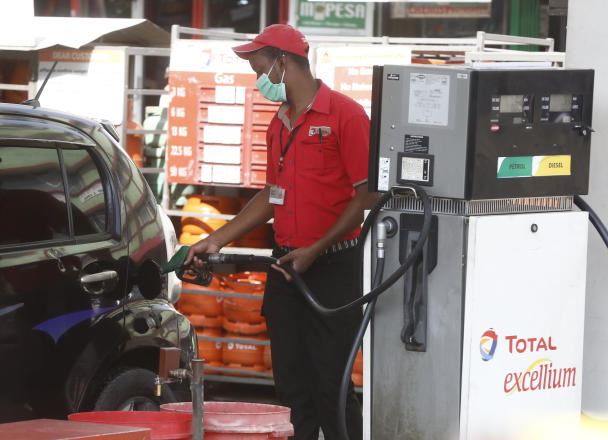×
The Standard e-Paper
Home To Bold Columnists

A petrol station attendant at Total petrol station in Nakuru. [Kipsang Joseph, Standard]
The International Monetary Fund (IMF) is a doctor of countries in critical condition, some comatose.